We all do it - we don't quite understand something, so we reach for our phones and Google it.
And Brexit is no different.
Here we answer the five most-googled questions to do with Brexit over the past 24 hours.
Don't worry, we promise to keep it simple.
1. What does Brexit mean?
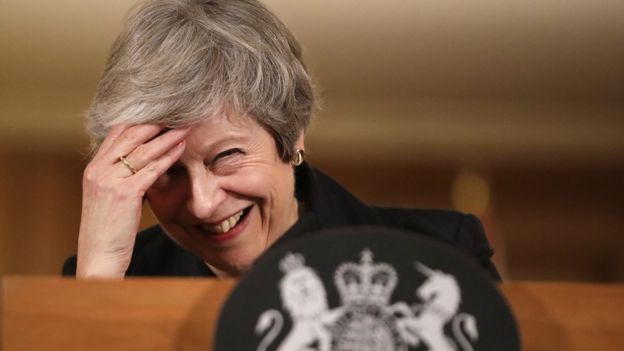 GETTY IMAGES
GETTY IMAGES
Brexit - short for "British exit" - is the process of the UK leaving the EU (European Union).
The EU is a group of 28 countries which trade with each other and allow anyone to easily move between the countries to live and work.
The UK had a referendum in June 2016 where it voted to leave the EU, which it's been part of for more than 40 years.
But the exit didn't happen straight away - it's happening on 29 March 2019.
2. What is the Brexit deal?
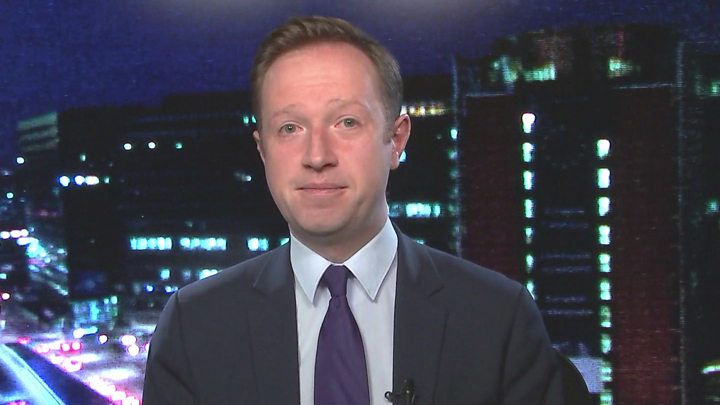
After Brexit was voted for, negotiations started between the UK and the EU.
The negotiations are over the "divorce" deal. This is a withdrawal agreement which sets out how exactly we leave the EU - not what will happen after we leave.
On Wednesday, Prime Minister Theresa May presented that deal. Here are some key points:
- Payment: The UK will pay £39bn to the EU to cover what it owes
- Transition period: Between 29 March 2019 and 31 December 2020 nothing much changes to allow the UK and EU to strike a trade deal and to give businesses the time to adjust
- Immigration: EU citizens and their families can continue to move to the UK freely before 31 December 2020
- Trade: There won't be any changes to trade in the transition period
- Northern Ireland: Neither the UK or the EU wants there to be a physical border between Northern Ireland and the Republic of Ireland (here's why). But in the deal, there's an agreement for a backstop.
- Click here for more on the draft withdrawal agreement
3. What is the backstop in Brexit?
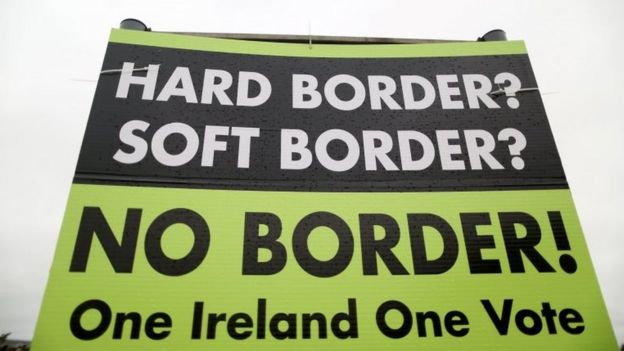 AFP
AFP
This has been one of the biggest sticking points of the whole thing.
Neither the UK or the EU want a visible or "hard" border between Northern Ireland and the Republic of Ireland with guard posts and checks.
So they've agreed to put in place a "backstop" - that's just another word for a deal to make sure a hard border never happens.
It would mean that Northern Ireland - but not the rest of the UK - would still follow some EU rules on things like food products and goods standards.
The backstop would only be introduced if a trade deal between the EU and the UK isn't sorted out during the transitional period.
But this bit is controversial. Some people say it means the UK would still be tied to EU rules while others don't like the idea of Northern Ireland having different regulations to the rest of the UK.
- Click here for more on the backstop
4. When will Parliament vote on the Brexit deal?
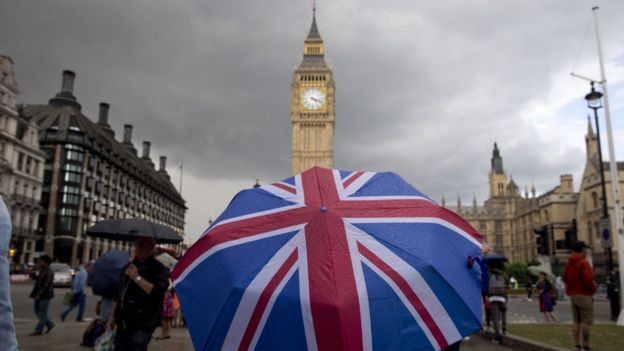 GETTY IMAGES
GETTY IMAGES
On 25 November, the prime minister will try and get European leaders to officially back the deal.
If approved, she then has to take it to MPs for a vote in Parliament. That's expected to happen in December.
At the moment it looks like her deal would be defeated.
She doesn't have enough Conservative MPs to force it through and there are MPs from all parties who aren't happy with what's being suggested.
- Click here for Brexit in eight charts
- Can May get Brexit deal through Commons?
5. Will Brexit even happen?
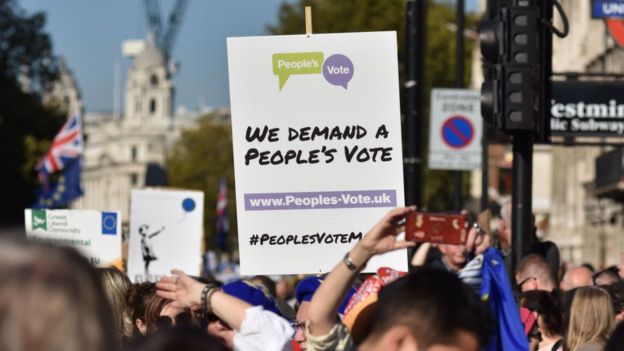 GETTY IMAGES
GETTY IMAGES
Well, it is written into UK law that Brexit is going to happen.
But some people are calling for a second referendum (they call it a "People's Vote"), which would basically ask the question: "Do you want the UK to leave the EU, now we know what the deal is?"
If that happened, then Brexit could potentially be reversed - but Theresa May has repeatedly said there won't be another referendum.
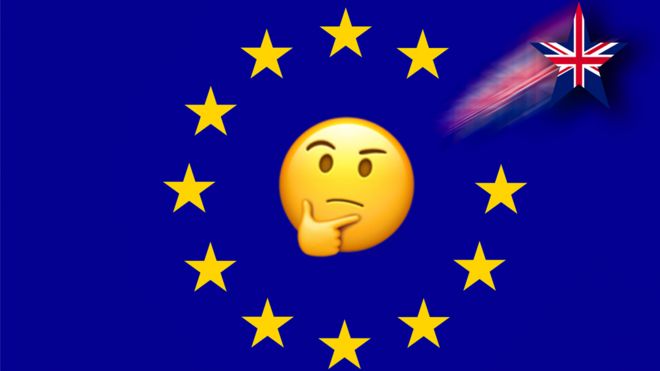
Comments
Post a Comment